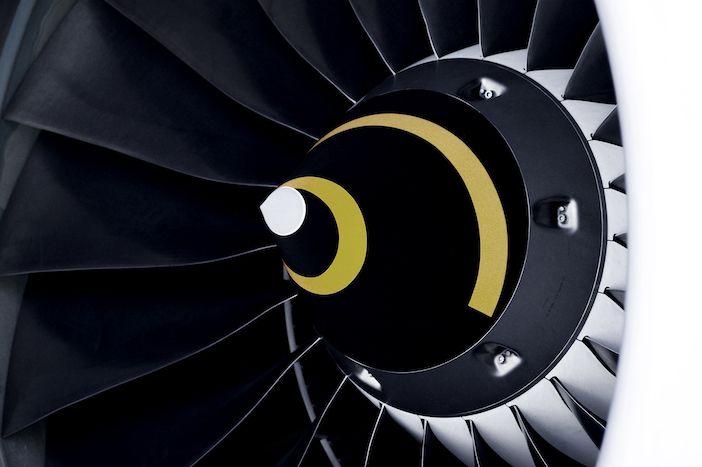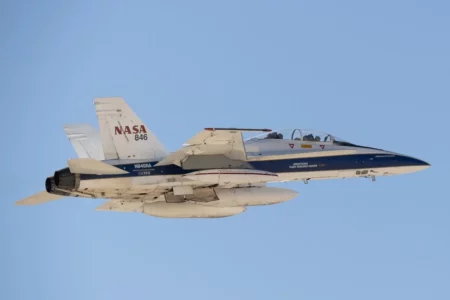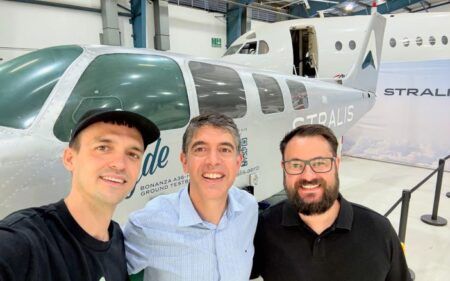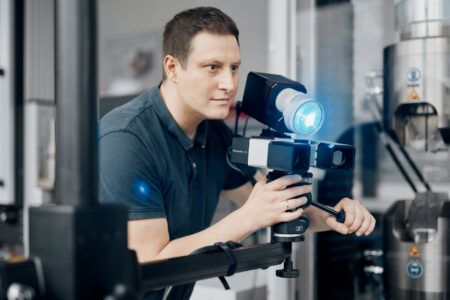Ten new startups focused on AI and autonomy have joined aerospace startup support scheme Aerospace Xelerated.
The ten artificial intelligence (AI) and autonomous technology startups are the third cohort of companies to join the initiative, which launched in 2019 and was previously known as the ATI (Aerospace Technology Institute) Boeing accelerator.
The startups were selected from 148 applications from around the world and work in areas such as autonomy, autonomous navigation, adaptive learning, generative design, smart maintenance and reduced workload.
During the 12-week Aerospace Xelerated program, which culminates with a demo day during April the entrepreneurs will meet potential investors and aerospace industry contacts. They also receive perks from partners including Amazon, HubSpot, SeedLegals and many more.
In addition, each startup gets the chance to receive an optional £100,000 (US$136,000) equity investment from Boeing, which leads the program.
Other industry partners include GKN Aerospace and the UK Ministry of Defence’s Defence and Security Accelerator (DASA), which will provide the cohort with industry insights and expertise. The companies will also have access to strategists and technical experts for support in developing proof of concept opportunities and receive mentoring from a global network of experienced entrepreneurs, mentors and investors.
The cohort includes:
- Amygda (Derby, UK) – a data observability platform for smart maintenance in high-value asset industries to reduce unnecessary maintenance and increase the reliability and sustainability of assets.
- The Airline Pilot Club (Dublin, Ireland) – a digital talent marketplace using AI and behavioural science to break down barriers to entry and improve quality standards in the pilot selection, training and recruitment process.
- Axion (US) – an AI-powered proactive management platform for engineering and quality leaders to accelerate development.
- Flare Bright (Aylesbury, UK) – the machine-learning company enables drone manufacturers to build digital twins to rapidly speed up the long test and evaluation process, running many times faster than real-time to optimise for more confident real-world tests.
- LexX Technologies (Melbourne, Australia) – LexX uses AI, machine learning and natural language processing to empower aircraft maintenance technicians to bring their data, knowledge, and experience together in one efficient and intelligent solution.
- Neurobotx (US) – the first neuromorphic AI platform for autonomous navigation, capable of one-microsecond obstacle detection and decision making based on big data, inspired by energy-efficient brain navigation.
- Pegasus Imagery (Edmonton, Canada) – develops autonomous aircraft and sensor systems to connect industry and government end-users with on-demand aerial imagery to solve challenges at scale.
- Sees.ai (Chichester & London, UK) – building the most advanced connected, autonomous command and control solution to enable safe and scalable unmanned flight in even the most challenging circumstances.
- Seidr (South Wales, UK) – a virtual learning and testing environment for crisis situations. Using immersive technology to generate novel conditions in safe-to-fail environments, so that plans and learning can be validated within evolving situations.
- TOffeeAM (London, UK) – a SaaS company providing an integrated cloud-based solution for advanced manufacturing.
The two previous cohorts have gone on to raise over £50 million (US$68 million) in funding and create more than 100 jobs across the UK.
At the end of 2021, cohort two startup HiiROC, which is developing a zero-emissions industrial process for producing hydrogen, announced a £26 million (US$ 35 million) funding round to expand the deployment of pilot units of its technology.
Nichola Bates, managing partner at Aerospace Xelerated and head of global accelerators and innovation programs at Boeing commented, “We’re incredibly excited to welcome our new cohort who are using groundbreaking technologies to solve some incredibly complex problems for the aerospace industry. From making it easier and efficient to gather complex data for aircraft maintenance teams to building the technology to enable unmanned flight, we can’t wait to see what comes out of the 12 weeks ahead.”
For more information on the program go to https://xelerated.aero
Related Stories
Podcast: Wil Benton and Nichola Bates, ATI Boeing Accelerator





